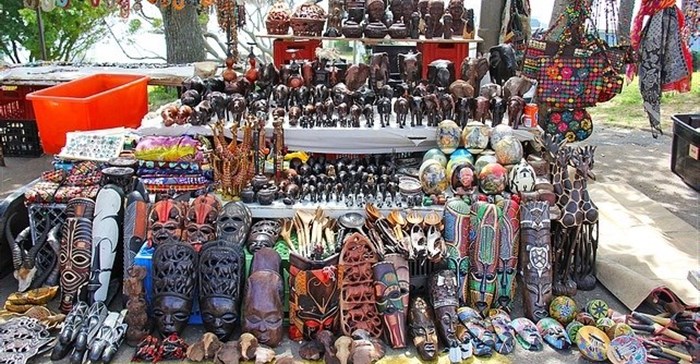When you travel, use an airport, buy a meal at a restaurant, take a taxi or pick up a souvenir from the market, does it ever occur to you just how much these actions and the money that you spend contribute to the local, regional and national economy of the country you are visiting?

Chardonnay Marchesi
Working in the industry of travel and tourism exhibitions, the issue of the economic impact is always raised, thrown about and used wherever possible. Understanding its relevance or its importance is often challenging.
A chain of events
On a business trip to Cape Town last week in preparation for our upcoming travel and tourism B2B event, World Travel Market Africa, I sat in the lobby of the hotel waiting for my colleague and I observed the chain of events in action. A foreign tourist arrived in a transfer vehicle and as she got out of the car, I noticed she slipped the driver what looked like a R50 note as a tip. She then gave her suitcase to the porter to take care of (another tip coming there for sure) and before checking in, asked the concierge where the nearest arts and crafts market was in order to buy some African souvenirs to take home with her to Holland.
A function was about to start at the hotel too and outside waiting was a colourful minstrel band eager to get their performance going for the guests. My colleague arrived and I left the scene but the image stayed with me for a while. All over Cape Town and all over Africa, similar activities were taking place. Local people were benefiting from tourists being in their midst.
The potential impact of tourism
In our industry, it is generalised that on average seven jobs are created for every tourist that visits a country, and the 2015 UNWTO annual report states that tourism accounts for 9% of global GDP. Yet, the market has an apathetic perception and a general lack of awareness of the potential this industry has to stimulate economic growth and promote social upliftment. The statistics are impressive and one can easily work out the impact that tourism can have here in Africa if we merely increase passenger numbers by a small percentage year on year.
Relative to other industries also, it is a labour intensive sector where the economic impact is felt swiftly and translated into hard cash by those employed by tourism, in their own local communities.
The City of Cape Town is well in tune with the benefits that tourism brings to its city and our partnership with them is a valuable one. Hosting Africa’s leading inbound and outbound B2B travel and tourism exhibition in this world class African environment encourages more business, brings more tourists, creates more jobs, more foreign exchange and a more stable economy. Something so essential to our economy.
A major player
Tourism is one of the world’s largest industries, where a lot of money is generated and exchanged. It is, therefore, a very crucial area. Tourism generates foreign exchange, enabling the exchanged currency to be a player in the global foreign exchange market. As a major player in the economies of many countries, tourism provides employment and job creation especially in the service industry in areas involving transportation, accommodation and entertainment. It stimulates trade, income and entrepreneurship - especially in small business sectors.
Even though global chains have a large piece of the pie, there are many tourists looking for different, local experiences that are untouched, providing a gap for entrepreneurs and SMMEs. The provision of new infrastructure allows for businesses to run smoother. It increases regional development, particularly in isolated areas. Tourism also generates a greater collection of taxes and revenues, which filters down to state welfare, education and other state-funded activities.
An exhibition such as World Travel Market Africa plays a key role in the economics of tourism in Africa. The event serves as a monetary boost to the tourism industry, with our 2015 exhibition generating US $333 million in new business for exhibitors. Exhibitors are also able to widen their reach, by reaching new markets through our hosted buyers and Buyers Club visitors. WTM Africa is the leading B2B travel and tourism exhibition, which will be held in their host City of Cape Town, 6-8 April.
































